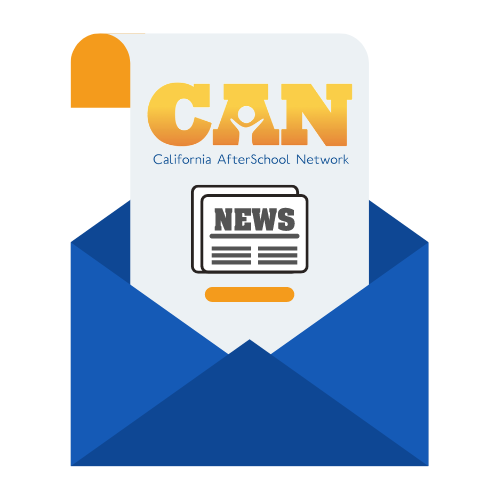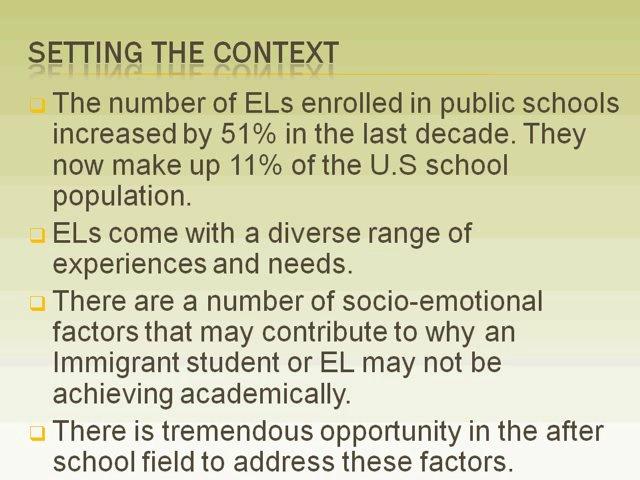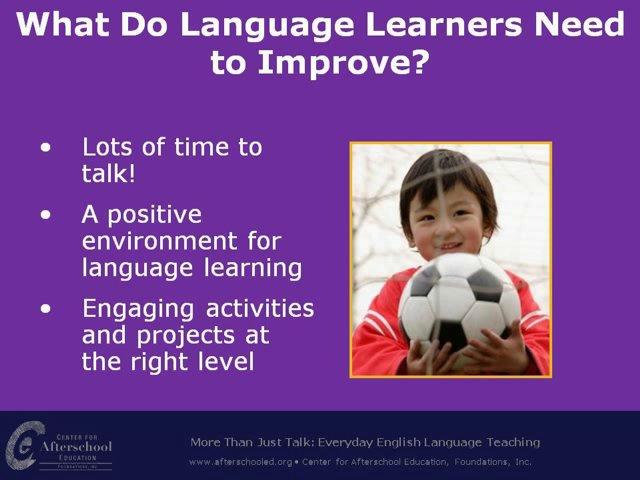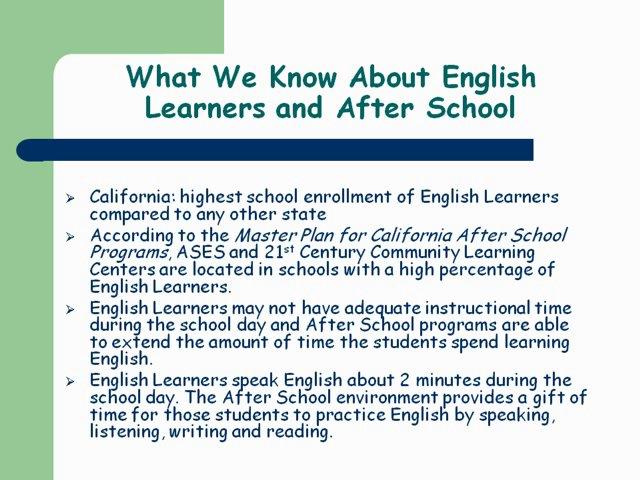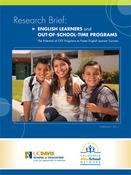English Learners
Resources for Children in Immigrant Families
In response to the current immigration policies, the Children’s Partnership and California Immigrant Policy Center launched a new report, Healthy Mind, Health Future: Promoting the Mental Health and Wellbeing of Children in Immigrant Families, to document their research and policy project to help children in immigrant families feel more secure.
Guide to Useful Apps for Learning ESL
In the current digital age, technology can be used to enhance learning experiences, especially for those learning English as a second language (ESL). Masters in English as a Second Language (mESL) has released a guide for ESL learners on useful mobile apps that can supplement learning English. This guide is divided into many different learning categories that will help ESL learners target their learning objectives. These categories include phonetics, vocabulary, and reading comprehension.
Free Webinar on Understanding and Meeting the Socio-Emotional Needs of English Learners
Often when our English Learner students are not succeeding academically or in their language development, we turn to providing additional academic help or language development support. While these types of supports are critical, it is also important to address an English Learner’s socio-emotional needs, as they may be the root cause of students’ academic and language development issues.
More than Just Talk: Everyday English Language Teaching
Free Webinar on Supporting English Language Learners
Explore activities and strategies to get English learners speaking, listening, reading, and writing in afterschool, from the Center for Afterschool and Expanded Learning’s newly expanded and revised publication, More than Just Talk: Everyday English Language Teaching. All participants will come away with tools and techniques after school programs can use to support English learners in subject-area classrooms– in ways that look and feel differently from the school day.
Presenter:
Jennifer Kobrin, Director, Center for Afterschool
Teaching English Language Learners- What the Research Does- and Does Not- Say
By Claude Goldenberg
Should students who are learning English spend the school day
in classes where only English is spoken? Or should they be
taught
reading and other academic skills and content in their native
language? Or should their classes be primarily in English,
but
include some explanations or materials in their native
language?
If their native language is to be used, how much native
language
instruction should they receive and for what purposes? And
aren’t
there other issues we need to consider, aside from language of
Effectively Supporting English Learners
This webinar will feature an overview of the quality elements in the California Afterschool Network Quality Self-Assessment Tool on Strategies to Support English Learner students. It will also feature presentations from Nora Zamora from the California Afterschool Resource Center (CASRC) and Cynthia Zarate who is a Co-chair of the Network’s EL Committee.
Research Brief: English Learners And Out-Of-School-Time Programs
Out-of-School-Time (OST) programs offer the ability to expand the school day and provide English learner (EL) students with more time in educational settings that help to address the dual learning challenges they face. Research shows that this additional time can make a difference if used effectively. To that end, this brief highlights research-supported ways in which OST programs might be particularly well suited to support EL students during that extra time.
Dave’s ESL Cafe
This website contains multiple resources for teachers, students, ESL jobs, and other resources such as quizzes for youth and podcasts.
ESL Partyland
A resource page for teachers and students of English as a second language. The website contains teacher resources, lesson plans, and assessment tools as well as multiple resources for (adult) students of learning English as a second language.
Teachers of English to Students of Other Languages (TESOL)
TESOL’s mission is to develop and maintain professional expertise in English language teaching and learning for speakers of other languages worldwide. TESOL is a membership agency. Some information and resources are posted on their website for individuals who are non-members. TESOL’s website contains:
Center for Afterschool Education at Foundations, Inc
Works with afterschool organizations, school districts, municipalities, and thousands of educators across the country dedicated to making the out-of-school hours a dynamic time for learning and healthy development. Grounded in practice (fourteen years operating pre-K-12th grade programs), the Center provides publications, professional development, and technical assistance for building high quality programs and effective aftershool educators.
Language Matters – Supporting English Learners in After School and Youth Programs
This article contains an overview of the state of English Learners in the United States, Background on Language Acquisition including information on supportive environments and home language development, and suggested strategies to support English Learners in After School and Youth Programs.

